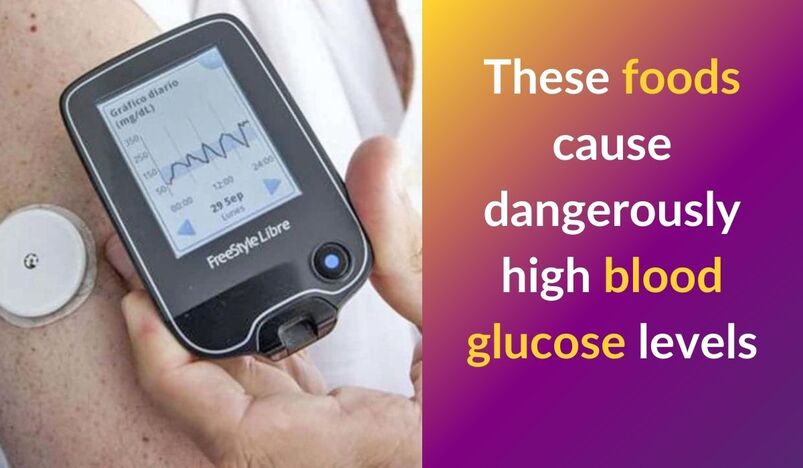
These foods cause dangerously high blood glucose levels
Blood glucose is one of many signs of our body to which we must pay particular attention, especially if we have diabetes because it is more likely to experience hyperglycemia (a substantial increase in glucose in the blood above normal levels).
However, many things can contribute to the rise in glucose levels; our foods have the most significant impact. For this reason, we want to share with you which foods are the most likely to cause an increase in glucose levels, which can be very dangerous to our health.
Avoid these foods at all costs.
It’s not easy to stop eating delicious and sweet foods; however, these foods are typically bad for our health. Therefore, especially when it comes to glucose regulation, it is advised that you avoid or at least limit your intake of the following foods.
Processed drinks, sodas, natural juice, and drinks with sweeteners that have large amounts of sugar raise blood sugar levels. As sugar is metabolized relatively quickly, the almost immediate spike in blood sugar reduces the ability of people who already have diabetes to control blood glucose. Also, these drinks increase the risk of developing diabetes for people who consume them every day.
People who consume a lot of ultra-processed meals are more likely to develop diabetes than those who consume more natural foods. This is because heavily processed foods are commonly high in sugar & fat; they are also exposed to processes that produce toxins that could generate insulin resistance. For people with diabetes, these foods are their worst enemies as they cause blood glucose spikes after eating them.
Refined carbohydrates such as rice, pasta, flour, bread with a high glycemic index raise the risk of type 2 diabetes. This is because these foods go through a process to refine them, losing vitamins, minerals, fiber, and antioxidants, significantly affecting the amount of sugar that accumulates in the blood. However, eating whole grains like bran cereal, oatmeal, maize can lower that risk.
Fruit juice is often considered a healthy beverage; its effects on blood sugar are similar to those of sodas and other sugary drinks. However, their high fructose content can worsen insulin resistance, promote weight gain, and increase the risk of heart disease.
Sauces and dressings are a great way of adding taste to dishes, but they mostly contain substances like fructose, corn syrup, and additives that can contribute to a lack of glycemic control.
This sort of diet raises triglyceride and cholesterol levels, increasing the risk of cardiovascular diseases and impairing blood glucose regulation.
Fruits are an excellent source of many essential vitamins and minerals, such as vitamin C and potassium. When they are dried, the process results in water loss, which leads to an even higher concentration of these nutrients. Unfortunately, its sugar content becomes more concentrated as well.
Dried fruits become more concentrated in sugar and may contain more than four times as many carbs as fresh fruits. Therefore, avoid dried fruit and choose fruits low in sugar for optimal blood sugar control.
In addition to avoiding all these foods, it is also important to adopt other habits, such as sleeping well and exercising. Knowing which foods to avoid when you have diabetes can sometimes seem challenging. However, following a few guidelines can make it easier. Your primary objective should be avoiding unhealthy fats, liquid sugars, processed grains, and other foods that contain refined carbs.
Avoiding foods that increase your blood sugar levels and drive insulin resistance can help keep you healthy and reduce your risk of future diabetes complications. Here in Qatar, it might help to make an appointment with diabetes educators at HMC or your Health center for support and advice or contact the Qatar Diabetic association. Also, HMC’s Diabetic hotline 16099 – select option 4.
.jpg)
Qatar Secures Place Among the World's Top 10 Wealthiest Nations
.jpg)
Hamad International Airport Witnesses Record Increase in Passenger Traffic

Saudi Arabia: Any visa holder can now perform Umrah

What are Qatar's Labour Laws on Annual Leave?
Leave a comment